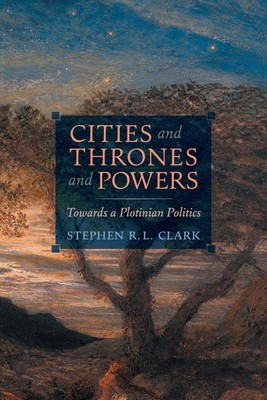
- We will send in 10–14 business days.
- Author: Stephen R L Clark
- Publisher: Angelico Press
- Year: 2022
- Pages: 328
- ISBN-10: 1621388557
- ISBN-13: 9781621388555
- Format: 15.2 x 22.9 x 1.9 cm, minkšti viršeliai
- Language: English
- SAVE -10% with code: EXTRA
Reviews
Description
What would a "reappeared" Plotinus answer today if asked how we might build a divinely-ordered city? That is the question at the core of this unique book, and Stephen Clark takes us on a wide-ranging deep dive to uncover possible answers. To do so, he first gives an account of the Plotinian philosophy of mind and metaphysics, showing how Plotinus nicely balances the entanglement of soul-body composites (our immediate identities) with the workings of the World Soul and the eternal soul that animates "from within." Drawing on later Christian and Islamic interpretations of the Neoplatonic tradition, and parallel developments in Hindu thought, he then describes the various social forms that seem to be the inevitable context of our lives here and now. Furthermore, we discover that the form a Plotinian religion adopts depends on taking seriously the thought of reincarnating souls and wandering hermits, but now with the difference in our time that, although some sages may be content to consider themselves simple wanderers in a world without borders or settled communities, some will follow the same path as Buddhists, Epicureans, and Christians: forming communities of friends loyal to their founder and to the fellowship of the Sangha. We learn as well that in due course even those among the hermits who prefer to go, almost literally, "alone to the Alone" will become part of dispersed, unhierarchical communities. Finally, Clark offers cautious thoughts about our likely futures, dependent both on current technological advances and on the realistic suspicion (shared by our predecessors) that catastrophes and wholly unexpected turns are always to be expected.
EXTRA 10 % discount with code: EXTRA
The promotion ends in 23d.00:34:02
The discount code is valid when purchasing from 10 €. Discounts do not stack.
- Author: Stephen R L Clark
- Publisher: Angelico Press
- Year: 2022
- Pages: 328
- ISBN-10: 1621388557
- ISBN-13: 9781621388555
- Format: 15.2 x 22.9 x 1.9 cm, minkšti viršeliai
- Language: English English
What would a "reappeared" Plotinus answer today if asked how we might build a divinely-ordered city? That is the question at the core of this unique book, and Stephen Clark takes us on a wide-ranging deep dive to uncover possible answers. To do so, he first gives an account of the Plotinian philosophy of mind and metaphysics, showing how Plotinus nicely balances the entanglement of soul-body composites (our immediate identities) with the workings of the World Soul and the eternal soul that animates "from within." Drawing on later Christian and Islamic interpretations of the Neoplatonic tradition, and parallel developments in Hindu thought, he then describes the various social forms that seem to be the inevitable context of our lives here and now. Furthermore, we discover that the form a Plotinian religion adopts depends on taking seriously the thought of reincarnating souls and wandering hermits, but now with the difference in our time that, although some sages may be content to consider themselves simple wanderers in a world without borders or settled communities, some will follow the same path as Buddhists, Epicureans, and Christians: forming communities of friends loyal to their founder and to the fellowship of the Sangha. We learn as well that in due course even those among the hermits who prefer to go, almost literally, "alone to the Alone" will become part of dispersed, unhierarchical communities. Finally, Clark offers cautious thoughts about our likely futures, dependent both on current technological advances and on the realistic suspicion (shared by our predecessors) that catastrophes and wholly unexpected turns are always to be expected.


Reviews